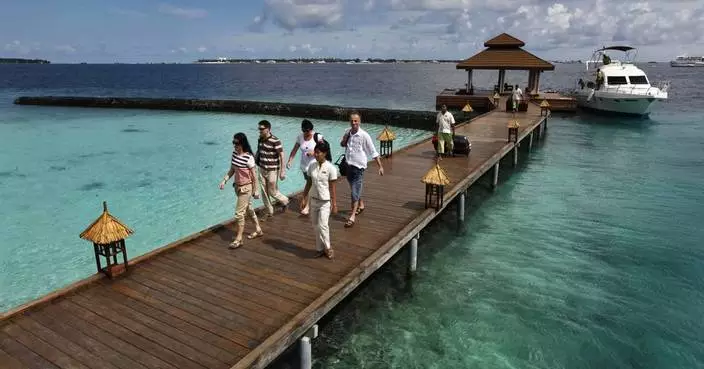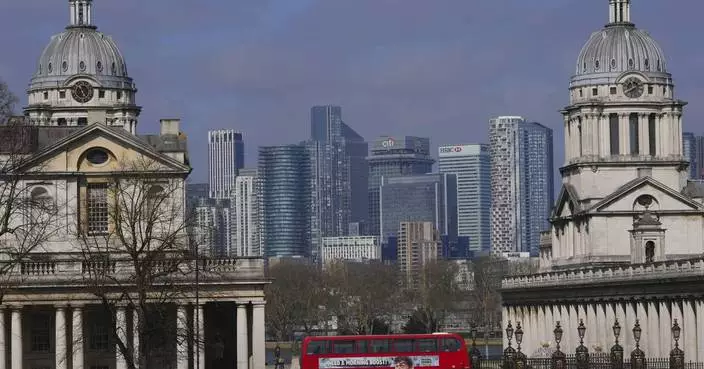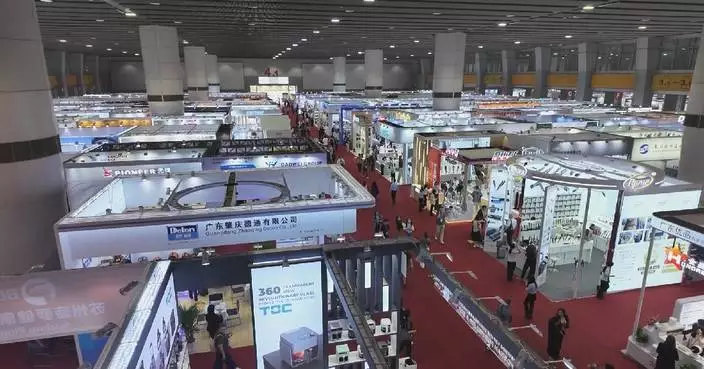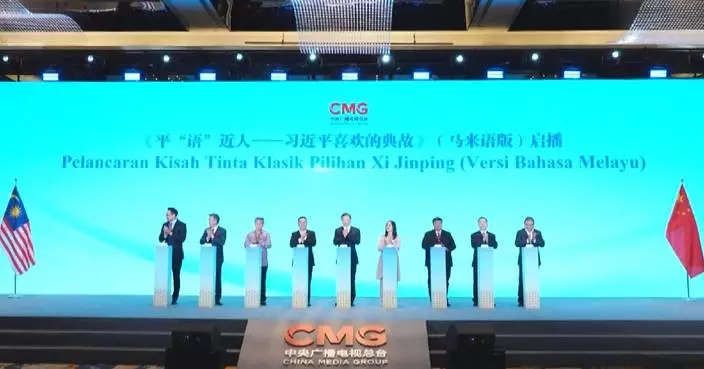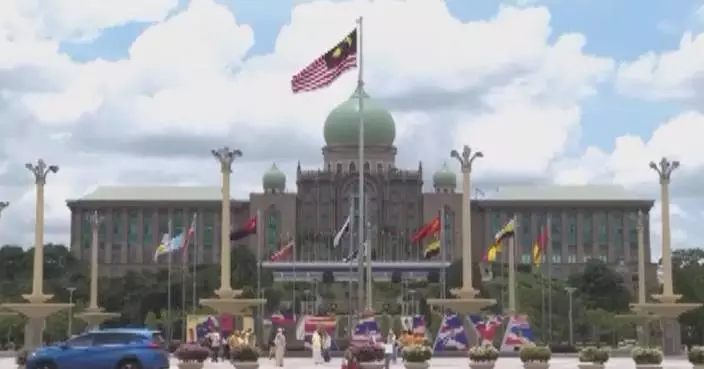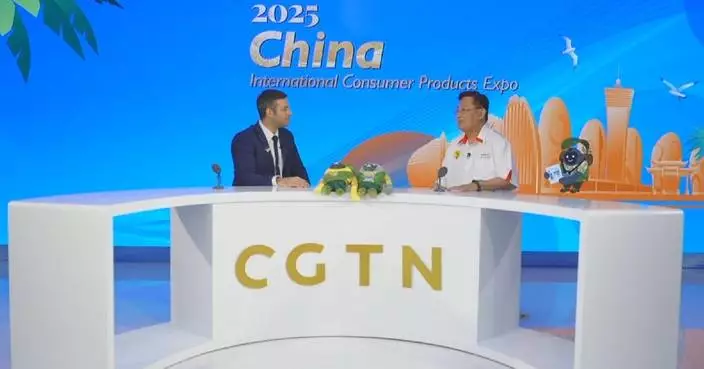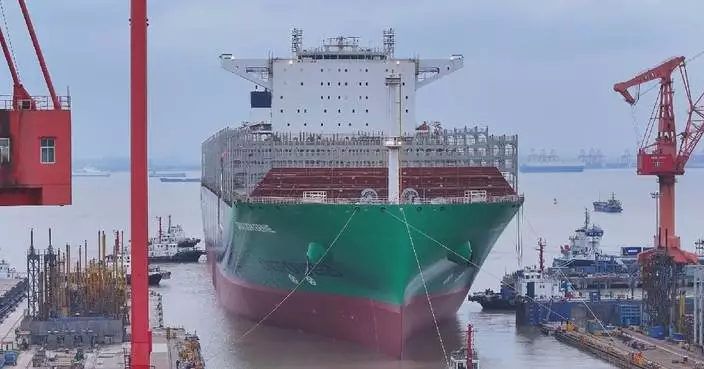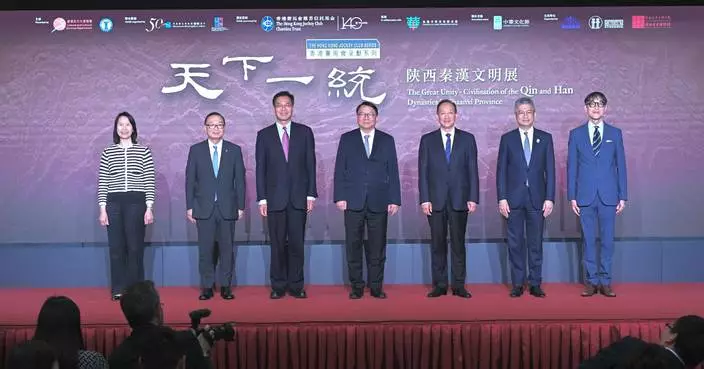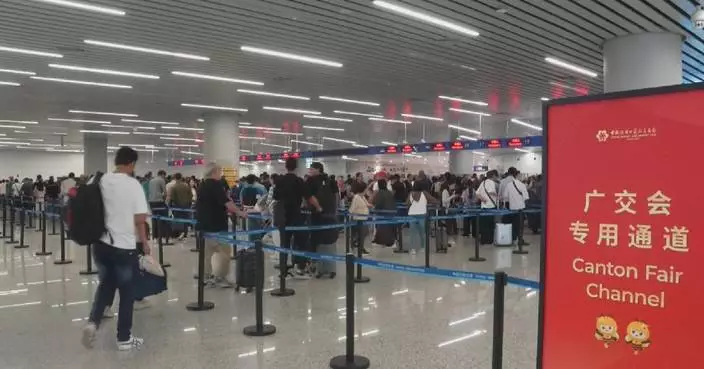SAO PAULO (AP) — Former Brazilian President Jair Bolsonaro was transferred Saturday by medical aircraft from northeastern Brazil to the capital Brasilia after being hospitalized with abdominal pain a day earlier.
Bolsonaro was hospitalized Friday morning while traveling in northeastern Brazil. The pain was caused by a bowel obstruction and was related to long-term effects of being stabb ed in the abdomen in September 2018, his doctors said.
Click to Gallery
Supporters hold a vigil for former Brazilian President Jair Bolsonaro after he transferred to a DF Star hospital with abdominal pain in Brasilia, Brazil, Saturday, April 12, 2025. (AP Photo/Eraldo Peres)
Supporters pray for the health of former Brazilian President Jair Bolsonaro after transferring to a DF Star hospital with abdominal pain in Brasilia, Brazil, Saturday, April 12, 2025. (AP Photo/Eraldo Peres)
DF Star Hospital, where former Brazilian President Jair Bolsonaro transferred after being hospitalized for abdominal pain, is seen in Brasilia, Brazil, Saturday, April 12, 2025. (AP Photo/Eraldo Peres)
FILE - Brazil's former President Jair Bolsonaro speaks to the media as he arrives at the Brasilia International Airport in Brasilia, Brazil, March 25, 2025. (AP Photo/Luis Nova, File)
Former President Jair Bolsonaro arrives at a demonstration demanding amnesty for those arrested for 2023's alleged coup attempt, in Sao Paulo, Sunday, April 6, 2025. (AP Photo/Ettore Chiereguini)
Bolsonaro has been in and out of hospitals since the attack at a campaign event before Brazil’s 2018 presidential election. The conservative leader underwent several surgeries during his presidency from 2019-2022.
“After so many similar episodes over the past few years, I had gotten used to the pain and discomfort. But this time, even the doctors were surprised,” he said in a social media post Saturday, adding that a longtime physician told him it was “the most serious case since the attack.”
Bolsonaro also said he would likely undergo another surgery. Earlier on Saturday, doctors at Rio Grande Hospital in the northeastern state of Rio Grande do Norte told journalists he was stable and not in need of emergency surgery, said further procedures would depend on his recovery.
Doctors also that the transfer to Brasilia was requested by his family and would happen Saturday afternoon.
The far-right leader was admitted to a hospital in Santa Cruz, a small city in Rio Grande do Norte, and later transferred to a hospital in the state’s capital, Natal. Bolsonaro was set to start a trip across the region to promote his party’s right-wing agenda, eyeing next year’s presidential election, though he himself is barred from running. The region traditionally has been a political bastion of President Luiz Inácio Lula da Silva.
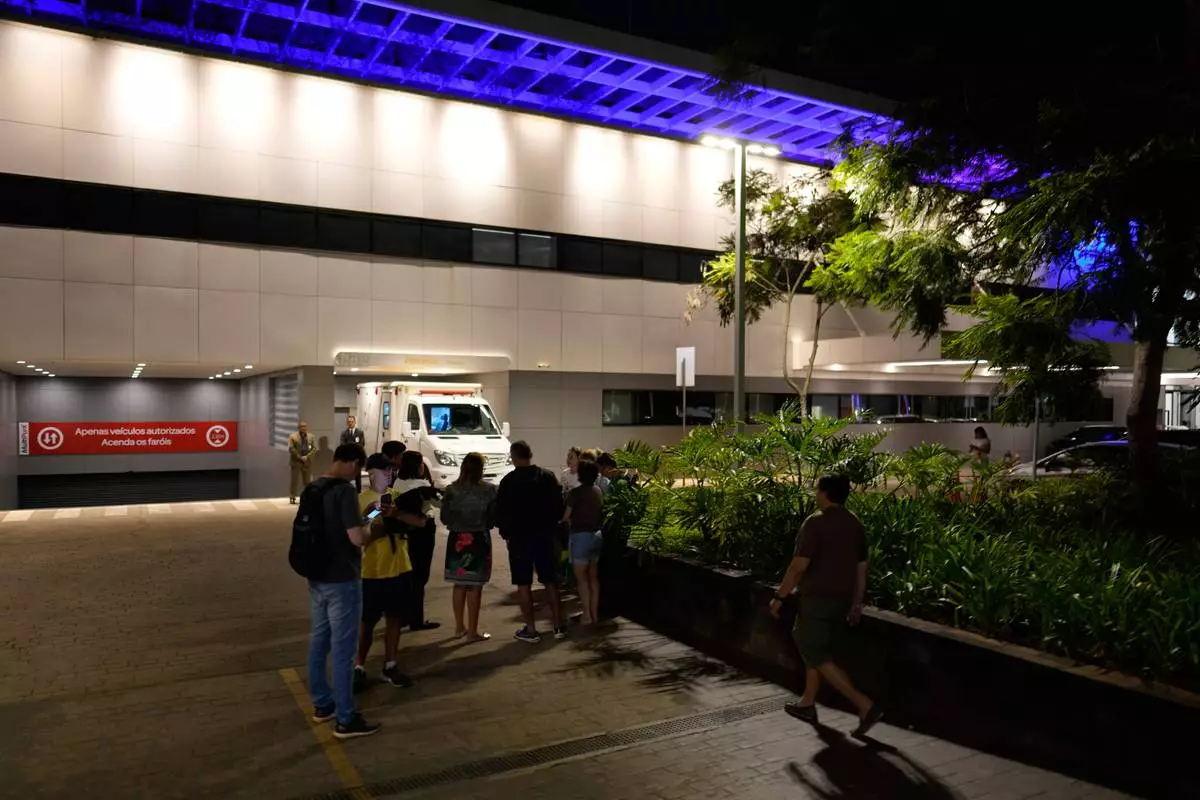
Supporters hold a vigil for former Brazilian President Jair Bolsonaro after he transferred to a DF Star hospital with abdominal pain in Brasilia, Brazil, Saturday, April 12, 2025. (AP Photo/Eraldo Peres)
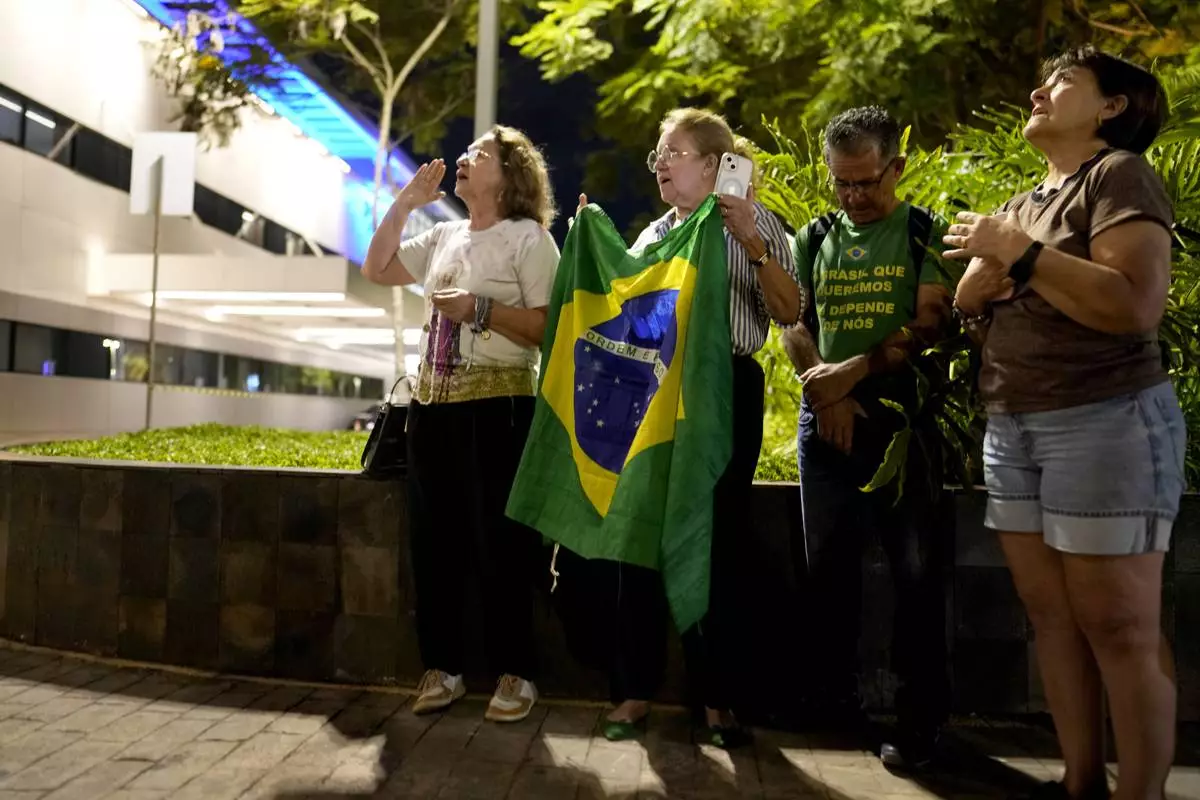
Supporters pray for the health of former Brazilian President Jair Bolsonaro after transferring to a DF Star hospital with abdominal pain in Brasilia, Brazil, Saturday, April 12, 2025. (AP Photo/Eraldo Peres)
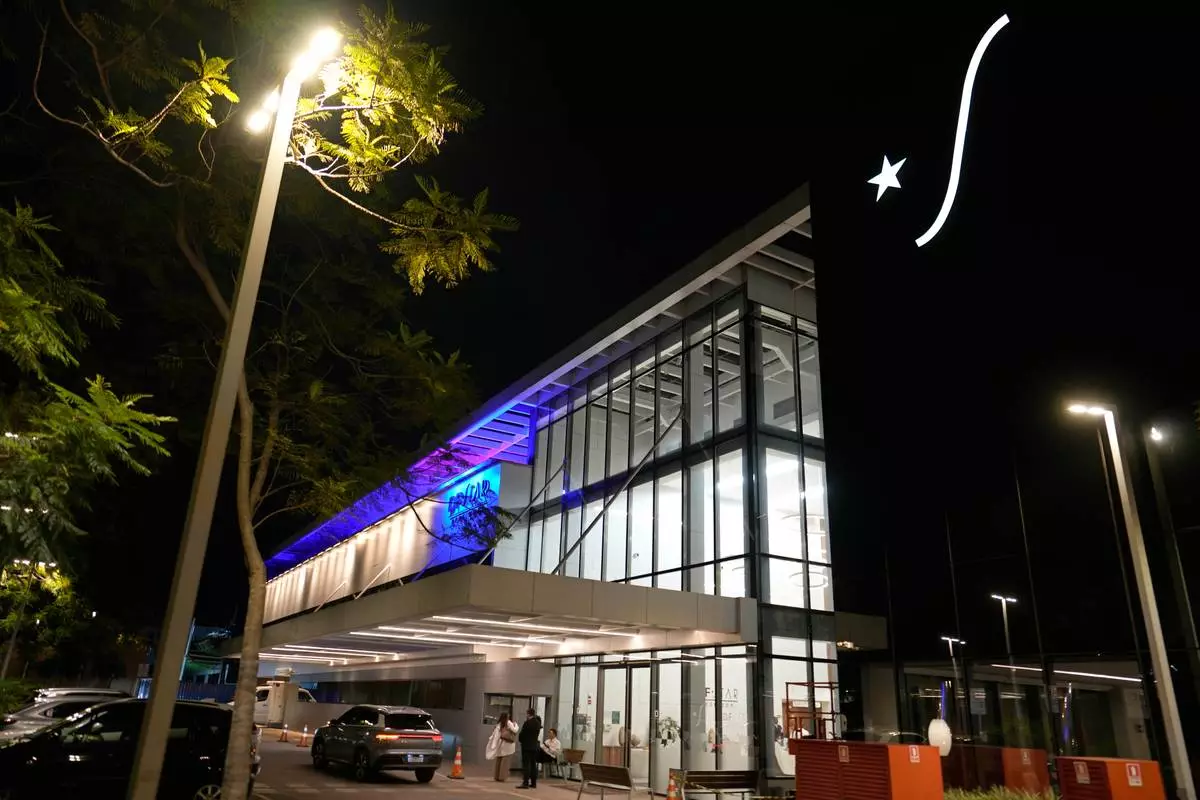
DF Star Hospital, where former Brazilian President Jair Bolsonaro transferred after being hospitalized for abdominal pain, is seen in Brasilia, Brazil, Saturday, April 12, 2025. (AP Photo/Eraldo Peres)

FILE - Brazil's former President Jair Bolsonaro speaks to the media as he arrives at the Brasilia International Airport in Brasilia, Brazil, March 25, 2025. (AP Photo/Luis Nova, File)

Former President Jair Bolsonaro arrives at a demonstration demanding amnesty for those arrested for 2023's alleged coup attempt, in Sao Paulo, Sunday, April 6, 2025. (AP Photo/Ettore Chiereguini)
OSAKA, Japan--(BUSINESS WIRE)--Apr 16, 2025--
The inaugural meeting of the Asian Productivity Organization’s (APO’s) annual Green Productivity Advisory (GPA) Council was successfully convened from 14 to 15 April 2025 in Osaka, Japan.
This press release features multimedia. View the full release here: https://www.businesswire.com/news/home/20250415110326/en/
The GPA Council, chaired by Professor Emeritus of the University of Tokyo Ryoichi Yamamoto, comprises members from Fiji, Japan, Indonesia, Singapore, and Thailand and advises APO Secretary-General Dr. Indra Pradana Singawinata on the development of a solution-based, action-oriented, Asia-centric GP 2.0 Ecosystem.
Secretary-General Dr. Indra reported the progress made by the Secretariat in conceptualizing the GP 2.0 Ecosystem, as well as three of its seven elements: the GP rating system; GP guidebooks; and GP mapping. In addition, prototypes of the GP rating system and GP mapping were unveiled and demonstrated to the GPA Council for the first review. Council members and their representatives provided insightful feedback and suggested adjustments to improve the overall design of the GP 2.0 Ecosystem and its elements.
The significance of the GPA Council’s efforts to incorporate the principles of GP, as defined by Professor Yamamoto in 1994, into the GP 2.0 Ecosystem was underscored at the Special Presentation Session held at the Blue Ocean Dome (BOD), EXPO 2025 Osaka, on the evening of 14 April, where council members highlighted past and present national efforts in implementing sustainability initiatives in the spirit of GP in Fiji, Indonesia, Japan, Singapore, and Thailand, while looking toward the GP 2.0 Ecosystem. The session included welcome remarks from President of ZERI Japan Yusuke Saraya, host of the BOD session; opening remarks by GPA Council Chair Professor Yamamoto; a video message delivered by H.E. Agni Deo Singh, Minister for Employment, Productivity and Workplace Relations of Fiji; and live presentations by council members and their representatives.
In his address, Guest of Honor Vice Minister of National Development Planning of Indonesia (BAPPENAS) Febrian A. Ruddyard emphasized the importance of green transformation and GP to achieve sustainable growth without exacerbating the immense pressure that the environment was already experiencing after decades of industrialization. The Special Presentation Session concluded with closing remarks by APO Secretary-General Dr. Indra, followed by a video highlighting the remarkable achievements of Biofarma, a pharmaceutical manufacturer from Indonesia, as a current example of GP in action demonstrating how the application of proven GP techniques had led not only to enhanced productivity but also to saving lives.
As the GPA Council reconvened on the morning of 15 April, presentations were given by two guest lecturers, which helped broaden the deliberations on the strategic direction of GP 2.0. A final set of recommendations on the development of the GP 2.0 Ecosystem was agreed upon that will guide the APO Secretariat’s efforts in the coming year. These recommendations will also be reported at the 67th Session of the APO Governing Body to be held in Jakarta in May 2025.
About the APO
The Asian Productivity Organization (APO) is a regional intergovernmental organization dedicated to improving productivity in the Asia-Pacific region through mutual cooperation. It is nonpolitical, nonprofit, and nondiscriminatory. Established in 1961 with eight founding members, the APO currently comprises 21 member economies: Bangladesh; Cambodia; the Republic of China; Fiji; Hong Kong; India; Indonesia; Islamic Republic of Iran; Japan; the Republic of Korea; Lao PDR; Malaysia; Mongolia; Nepal; Pakistan; the Philippines; Singapore; Sri Lanka; Thailand; Turkiye; and Vietnam.
The APO is shaping the future of the region by fostering the socioeconomic development of its members through national policy advisory services, acting as a think tank, institutional capacity-building initiatives, and knowledge sharing to increase productivity.
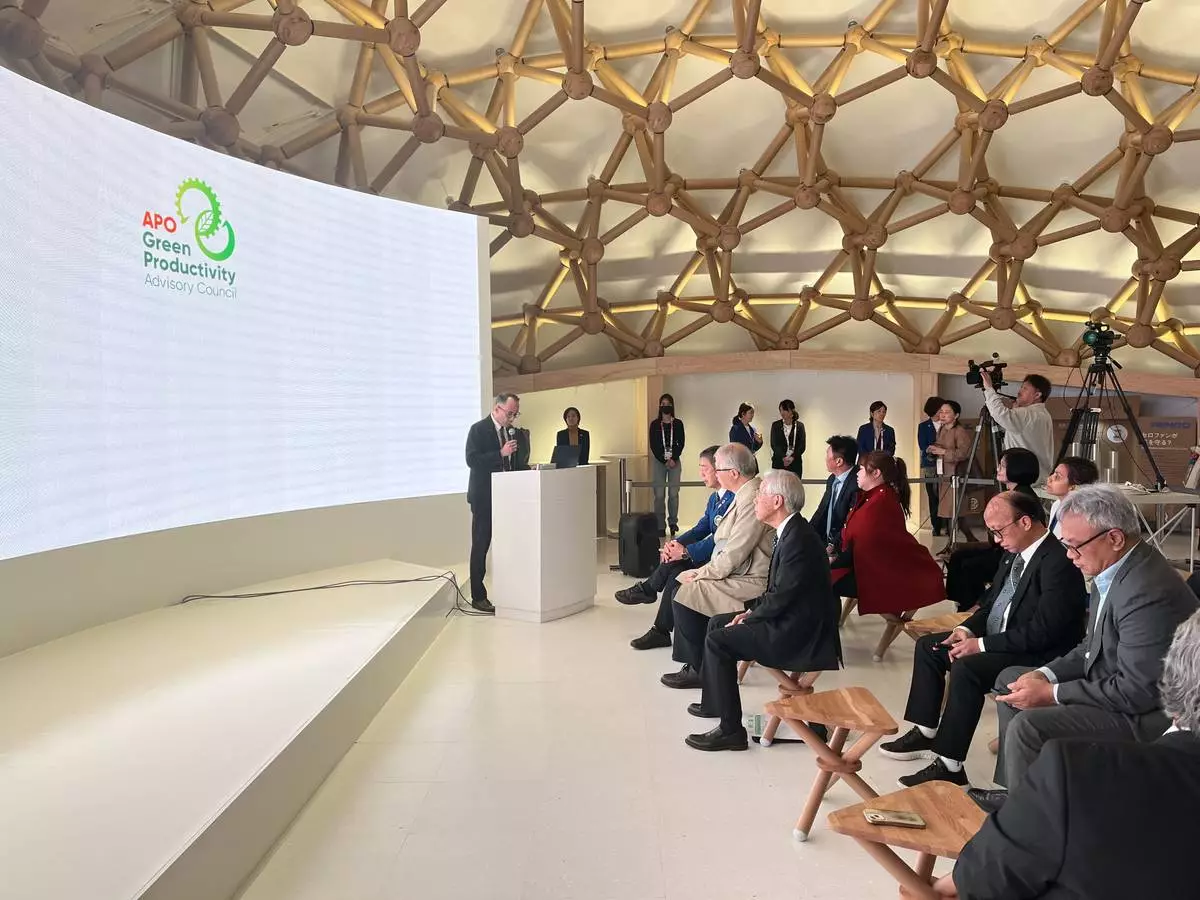

APO Secretary-General Dr. Indra delivering the closing remarks at the GPA Council Annual Meeting Special Presentation Session at the Blue Ocean Dome, EXPO 2025 Osaka.














